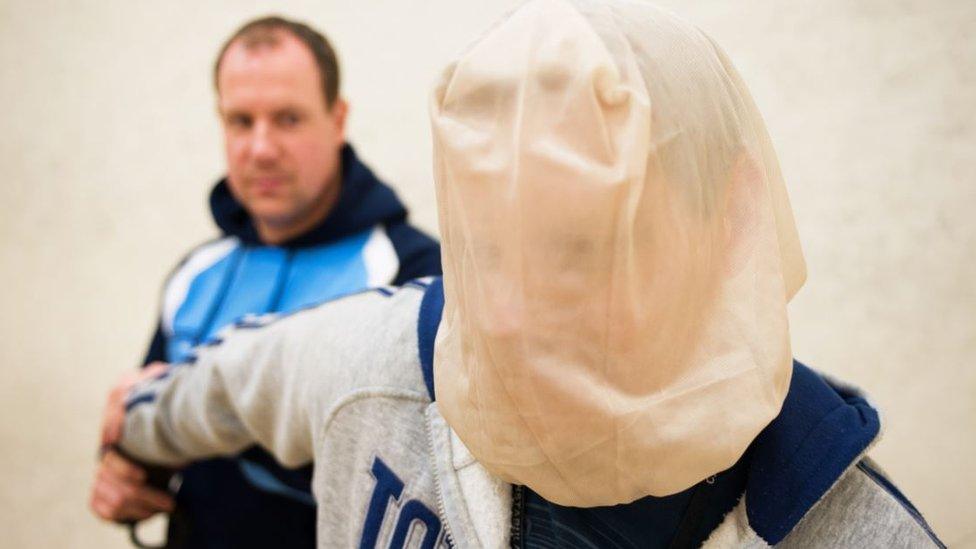Devon and Cornwall Police to use spit and bite hoods
- Published
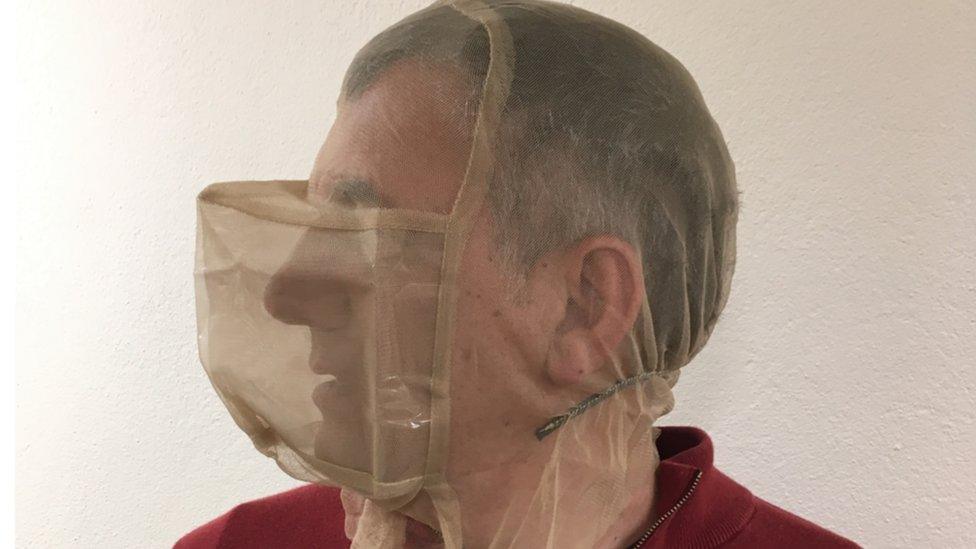
The spit guards will be rolled out with immediate effect as officers are trained and equipped
A police force is introducing spit guards to help reduce assaults on officers, staff and emergency service workers.
Devon and Cornwall Police said there were 216 assaults on officers and staff in 2016, 18% of which involved saliva, blood and other bodily fluids.
The mesh fabric hoods are placed over a person's head to prevent them from spitting at or biting officers.
Civil liberties groups have previously described the guards as "dangerous".
Campaign group Liberty said they were "degrading" and claimed they could cause panic in the detained person.
Twenty-six police forces across the UK already use the guards, both in operational and detention settings.
In August, Met Police Commissioner Cressida Dick ruled out front-line officers using them during arrests, saying they should only be used in custody suites.
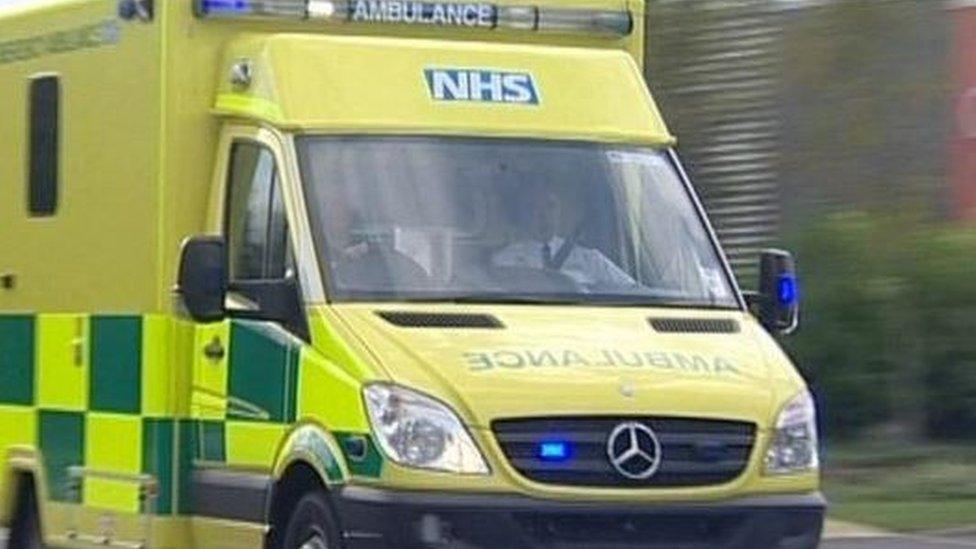
The guards will also be used to help protect ambulance service personnel from assaults
Devon and Cornwall Police Supt Ian Drummond-Smith said biting and spitting was "an atrocious act".
"Too often, officers, security guards or NHS staff are spat upon, not just with saliva but also with blood and other body fluids," he added.
Supt Drummond-Smith said this type of assault could have "distressing implications" and added it was important the equipment was available to keep staff safe.
He said the suitability of different alternatives had been researched and the preferred spit hood option had been "robustly medically tested".
The officer added that the Police Federation had been fully engaged and supported the move.
The introduction of the guards has been welcomed by South Western Ambulance Service's chief executive Ken Wenman who said any assault on emergency service staff was "unacceptable".
They will be introduced "with immediate effect", although officers will not use them until they have undergone training.
- Published13 January 2019
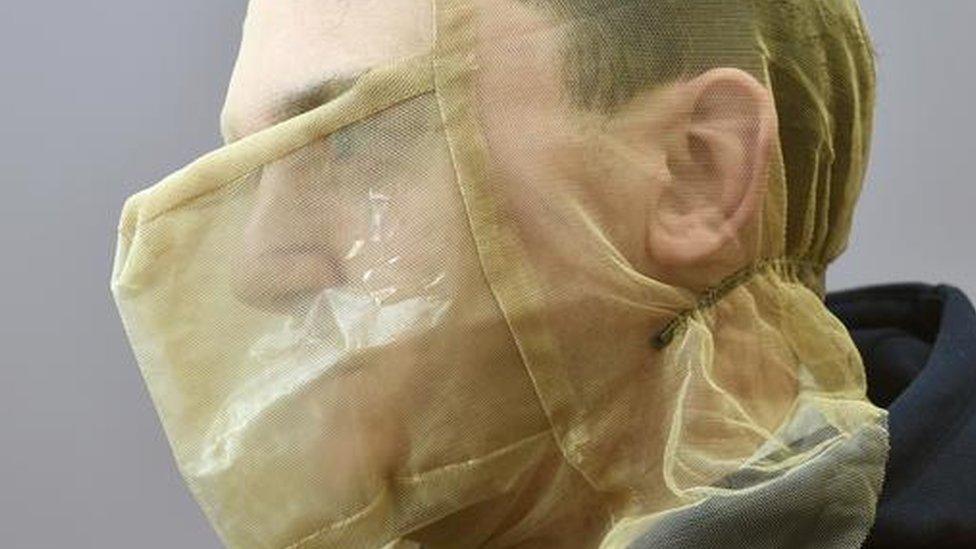
- Published23 October 2018
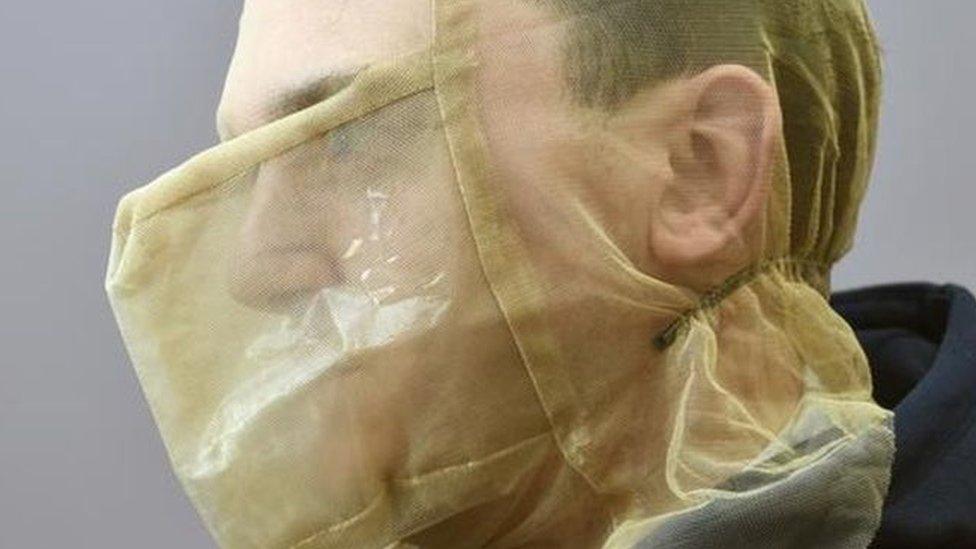
- Published12 November 2016
